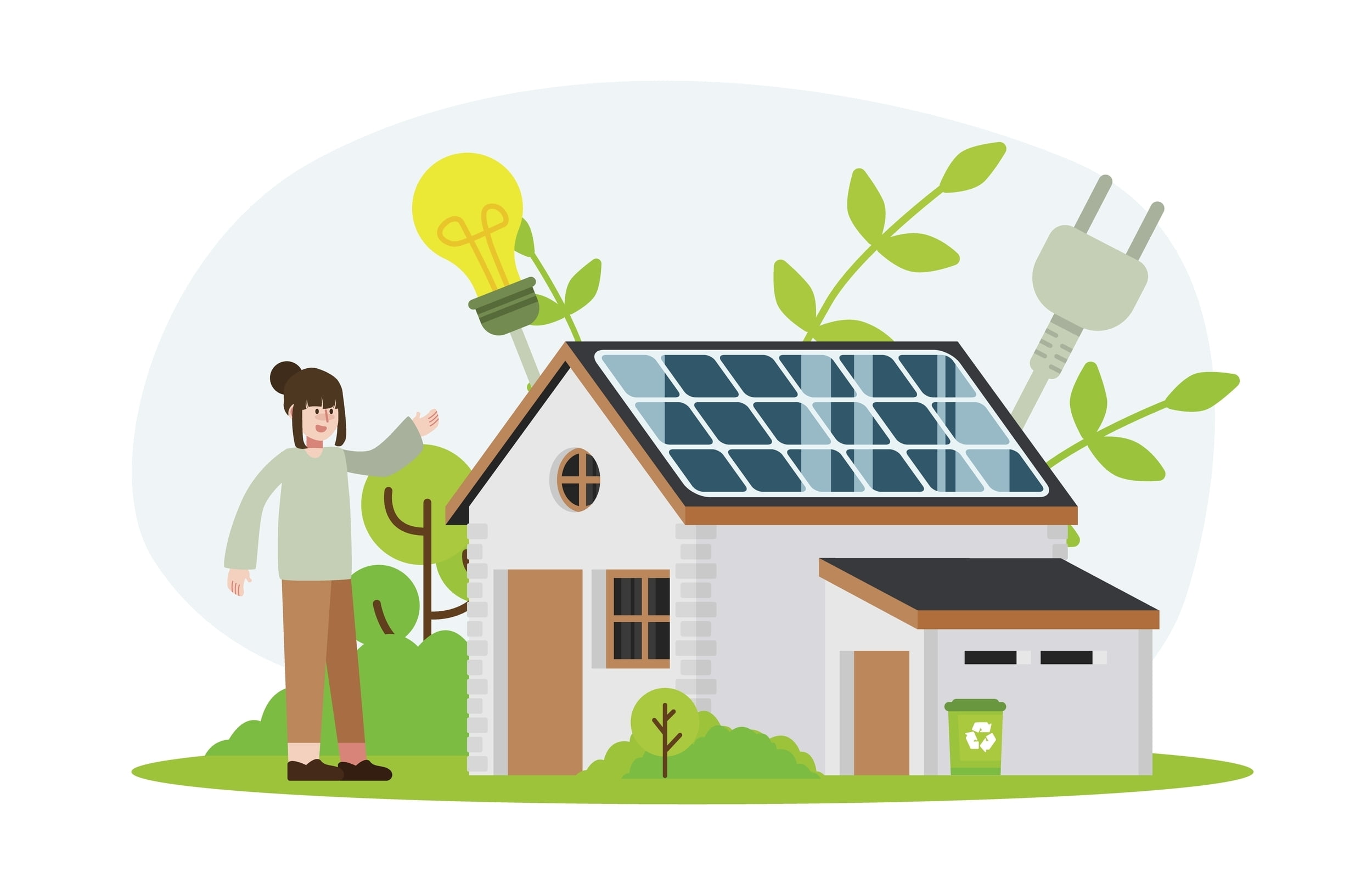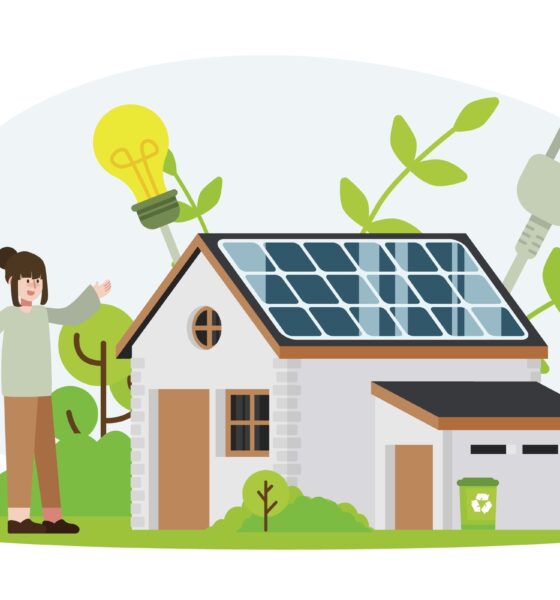

Lifestyle
Sustainable Ideas for Eco-Friendly Home Activities
This year’s Earth Day 2023 with its theme of ‘Invest In Our Planet’, provides the ideal prompt to take another look at how to make everyday activities in the home more sustainable. From climate-friendly gardening to inspiring art for our home’s interiors, learning to be eco-conscious doing the hobbies we love can have a positive impact on our health, the properties we live in and our planet.
Sometimes it can feel like if it weren’t for our hobbies we would just spend our lives working, doing chores, and sleeping. But with so much focus on lowering our carbon footprints and environmental impact, it can be a concern that our hobbies don’t follow suit.
Rather than denying ourselves the satisfaction and enjoyment we get from our hobbies, however, we can make sustainable alterations to the activities we love to keep enjoying them guilt-free. So whether you love arts and crafts, DIY projects around the home, or getting green-fingered in the backyard, here are our top tips for making your hobbies more sustainable.
What Makes an Activity Sustainable?
For an activity to be considered sustainable you must use resources wisely and conscientiously to reduce consumption and our carbon footprint. That could be through using recycled or repurposed materials or you may seek alternative materials that are organic, renewable, or don’t use chemicals that are harmful to the environment. For example, the act of upcycling can be both a hobby and something sustainable.
Eco-friendly Gardening
Gardening is, by nature, a sustainable activity but some methods can help you to enjoy your hobby and live your life in a more environmentally friendly manner. From using native species and planting trees to changing with the seasons, there are plenty of ways to enjoy gardening sustainably.
Avoiding Harmful Chemicals
One of the hardest things for a gardener is to see their plants, crops, and produce eaten alive by pests such as insects, birds, or rodents. The temptation can be to reach for pesticides to deter any would-be pests from snacking their way through your plants.
However, pesticides can contaminate soil or water, and represent a danger to human health with side effects such as blistering and nausea. To move away from such harsh chemicals in your gardening projects, consider encouraging natural predators into your outdoor space to take care of the pests for you.
Birds are great natural garden defenders while physical barriers such as mesh or a cloche made from repurposing a plastic bottle are also an additional layer of protection. You can even use eggshells and used coffee grounds to protect against slugs while also reducing your kitchen waste.
Growing Your Own Food
Being able to cook different types of wild greens, plants and herbs, plant vegetables and eat your own healthy produce can be a great source of pride for planet-friendly gardeners. Knowing that your hard work over the course of a few weeks and months helped to cultivate the food on your plate is hugely rewarding. But more than that, growing your food is also a way to help save the planet.
The carbon footprint of the fresh produce we buy at the store is huge in comparison to that which you grow in your garden. From transporting produce across the country to the plastic packaging used that ends up in landfill, growing your own is a much more sustainable method.
Lowering Your Impact in the Kitchen
Cooking is more than an essential and if spending time unwinding and experimenting is your thing then you can enjoy your hobby while minimizing your environmental impact. From changing up your ingredients to reducing food waste, being economical in the kitchen doesn’t mean you have to be boring.
Experimenting with Vegan and Vegetarian Dishes
Whether you are a meat eater or not, there is no shortage of recipe ideas to help increase your plant-based food consumption. From making it your mission to replicating the flavor or texture of meat in your dishes to working your way through a collection of vegan recipes from inspirational chefs, there are plenty of ways to experiment in the kitchen.
Challenging Yourself to Eat Seasonally
Eating the same old thing day in and day out can quickly become tedious, even if it’s one of your favorite dishes. One way to help reduce your environmental impact (while also mixing up your menu) is to eat seasonally and locally produced ingredients.
This helps reduce your carbon emissions as some produce is not only shipped across the country but also from various locations around the world. But, perhaps more importantly, your food will be fresher and your plates more vibrant!
Avoiding Food Waste
Food waste is something that many of us can be guilty of. An estimated 80 billion pounds of food is wasted every year in the United States, equating to approximately 30-40% of the US’ annual food supply. Therefore, we all must do what we can to avoid food waste, and if cooking is your passion then consider getting creative with your leftovers.
From making stock using excess vegetables to converting unused fruit into a preserve, there are often plenty of options for your leftovers before tossing them in the trash and wasting food. Finally, if your food must go to waste, try composting it and creating enriched soil that helps you to grow produce.
Artwork and Images for Eco-friendly Interiors
Sustainability should not be a barrier to being artistic or creative at home, in fact trying to lower your impact can help get your creative juices flowing. From more sustainable materials to buying used equipment and upcycling, your creative homely projects don’t have to take a backseat in the name of saving the planet.
Creating Photos with Care
Photography is one of the most accessible art forms there is and having a variety of beautiful images in your home of family, friends, pets or holidays is an ongoing delight for everyone. All you truly need to practice on is a smartphone but to develop your hobby further, you may wish to invest in a camera that provides more challenge and variety. Sustainability in photography can be achieved in a variety of ways, from buying used equipment and higher quality kit that lasts longer to treating the environments you shoot in with respect and traveling to locations by bicycle or carbon-neutral transport.
Recycling Artworks
There are plenty of materials that can be found around our homes to use as a medium for our artwork. From turning your cereal boxes into color-drenched masterpieces to reforming glass bottles into art pieces, the only limit is your imagination. Whether you are recycling materials from your home or you reclaim them from online forums, charities, or building companies, there is no shortage of inspiration out there.
Planet-conscious Home Improvements
Improving your home can sometimes be a labor of love, but a rewarding one for the hours you put into it. Not just for improving aesthetics, DIY home improvement projects can also help boost your home’s sustainability while reducing your environmental impact.
Upgrading Your Lighting to LED
One simple upgrading project that can be done in no time is to upgrade your light bulbs to LED. Not only can switching to LED lighting in your home save you money, an estimated $215 a year on lighting but you are also saving energy as they require up to 90% less energy than regular incandescent bulbs.
Using Recycled or Reclaimed Materials
Whether you are looking to build shutters to keep the sun out during the warmer months, new cabinets to refresh your kitchen, or a porch to make better use of your outdoor space, reclaimed or recycled materials can help keep your carbon footprint low.
Rather than adding to the need for the creation of new materials, use those that already exist to help promote a more circular approach to DIY projects. This reduces waste, circulates materials, and puts less pressure on nature to regenerate.






























